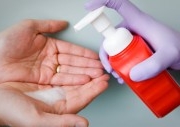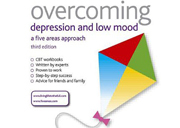Junior Doctors – top tips on surviving your first week on the wards
As I write, Twitter is buzzing with doctors and other healthcare professionals imparting their knowledge and advice to the new Junior Doctors who will be arriving on the wards next week (#tipsfornewdocs). Some of their tweets are included below.
I was asked to offer my own thoughts to Christian Junior Doctors on how to survive the first week on the wards, so here goes…
1. Do not be anxious about anything
Do not be anxious about anything, but in every situation, by prayer and petition, with thanksgiving, present your requests to God. And the peace of God, which transcends all understanding, will guard your hearts and your minds in Christ Jesus. Philippians 4:6-7
Starting work as a Junior Doctor for the first time is very much like the first day at school… This is the beginning: the start of a very long journey which will have its highs and lows, ups and downs, trials and joys.
In fact, four years on, starting each new rotation still fills me with fear and anxiety, often causing me to lie awake in the middle of the night with palpitations… until I remind myself of these verses from Philippians. We need not be anxious about anything – but rather pray and ask God for everything we need, always giving thanks. I have lost count of the number of times these verses have rung true for me – whether looking after a sick patient on the ward in the middle of the night, trying to insert a difficult cannula, about to face a difficult conversation with a relative or member of staff, or before starting a new job.
@drcatchatfield: If feeling anxious about a patient, even if you can’t find anything wrong, discuss w/someone. Don’t be afraid to be wrong.
Remember, as an FY1 you are supposed to be working under supervision. If you are unsure, ask. If you’re worried about a patient, ask. If it’s taking a long time to make a decision, ask. There will (or should) always be someone more senior you can ask for help.
@socalexmd: In resus situations, first take your own pulse
And if you’re facing a situation you’ve never come across before, don’t panic! Remember the basics: ABC if it’s an emergency and get some senior help. If it’s something more obscure and not an emergency, then history, examination, investigations. Come up with an “impression” and a plan, then discuss with someone senior.
2. Work at it with all your heart
Whatever you do, work at it with all your heart, as working for the Lord, not for human masters, since you know that you will receive an inheritance from the Lord as a reward. It is the Lord Christ you are serving. Colossians 3:23-24
As a new Junior Doctor, you will feel out of your depth at times. You will get things wrong. You will make mistakes. This is the reality.
Someone who is keen to learn, turns up on time, asks when they do not know and works hard makes an excellent FY1. These qualities (arguably) count for far more than knowing all the latest evidence about a topic and being able to perform complex practical procedures. Whatever you do, work at it with all your heart, as working for the Lord.
@bioethix: Don’t boast about being too busy to have a break and eat. You’re not.
Bearing this in mind, it is important to take a break. It should be possible for you to have a thirty minute break after approximately four hours at work. Yes, some days (or nights) it will be very busy and difficult to get away from the ward. But you are not a machine! You need fuel and rest. Taking some onhealthy topamax time out – even just ten minutes for a quick sandwich – will enable you to work much more effectively when you return to the ward.
3. Remember who you are serving
Inevitably in the first few days you will be wanting to make a good impression, to show that you’re a half-competent doctor, that you’re willing to learn and that your seniors will be able to trust you. This is stressful in itself and however hard you try, you are never going to get it right all the time. You will forget to do things, you will feel very silly at times and you will regret something you said or did in front of the very Consultant you were trying to impress.
The Bible tells us that we are to “work… for the Lord, not for human masters… It is the Lord Christ [we] are serving.” When I’m feeling frustrated that I got a question wrong, couldn’t remember a significant blood result, or made myself look stupid in front of my Consultant, I remind myself that it doesn’t really matter what my “human masters” think of me. It is the Lord Christ I am serving. And in doing this, I will be trying my hardest to do the best I possibly can for my patients, turning up on time, showing I care, going the extra mile… and working hard for the rest of the team.
@akatie: Don’t wear high heels to work on the ICU, u will look ridiculous, the nurses won’t trust u & hunky drs won’t notice!
4. Imitate Christ’s humility
Do nothing out of selfish ambition or vain conceit. Rather, in humility value others above yourselves, not looking to your own interests but each of you to the interests of the others. Philippians 2:3-4
@welsh_gas_doc: Nurses are like bees – if you upset one, the whole hive will come after you. You don’t want that. Be nice to them.
So you’ve made it! You’ve completed five/six years at medical school, passed all your exams and now you have the big “Dr” in front of your name! Congratulations!
@welsh_gas_doc: Most dangerous things you will take into hospital will be your ego and hubris. Leave them at home before they kill someone
Remember that you are just one small part of a very large team looking after the patients. The nurses on the ward may have been there for 30 years. They will have far more experience than you. They will have seen hundreds of Junior Doctors come and go and “changeover” time can be rather frustrating: just as they have trained up one lot of doctors, they have to start all over again: getting to know a new bunch of doctors and orientating them to the ward.
Get to know the other members of the team: the nurses, physios, OTs, ward clerks, pharmacists, housekeepers, HCAs… Respect and value their opinions. Be polite and courteous to everyone, especially patients and their relatives. Say “please” and “thank you”.
@trished: Never be too proud to ask a nurse for advice. I learned more practical wisdom from them in a mth [sic] than in 5yrs at med school
5. Shine like stars
Do everything without grumbling or arguing, so that you may become blameless and pure, “children of God without fault in a warped and crooked generation.” Then you will shine among them like stars in the sky as you hold firmly to the word of life. Philippians 2:14-16
God calls us to be “salt and light” – even in the workplace. Take every opportunity to “live out” your faith. People will notice…
Have fun and good luck!
Posted by Dr Sarah Maidment
Member of the CMF Junior Doctors’ Committee
(originally published on http://mediconabike.blogspot.co.uk)













Leave a Reply
Want to join the discussion?Feel free to contribute!